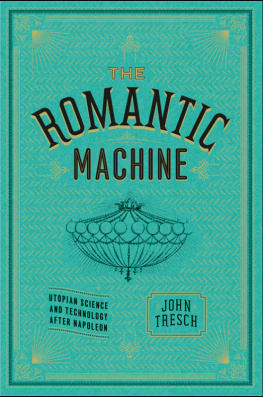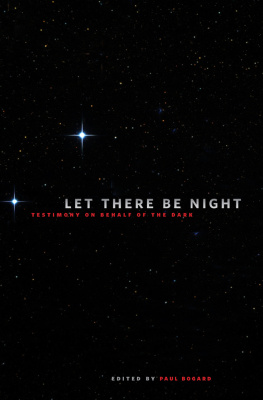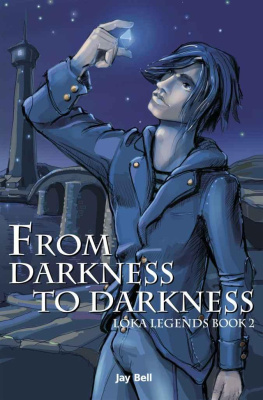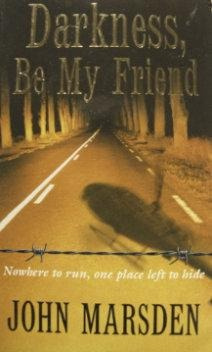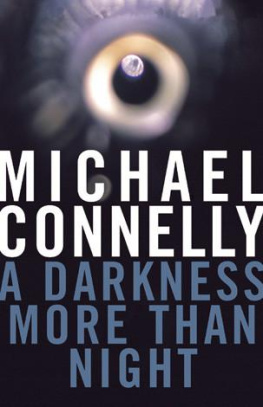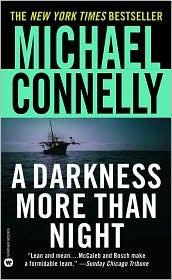John Tresch - The Reason for the Darkness of the Night
Here you can read online John Tresch - The Reason for the Darkness of the Night full text of the book (entire story) in english for free. Download pdf and epub, get meaning, cover and reviews about this ebook. City: New York, year: 2021, publisher: Farrar, Straus and Giroux, genre: Detective and thriller. Description of the work, (preface) as well as reviews are available. Best literature library LitArk.com created for fans of good reading and offers a wide selection of genres:
Romance novel
Science fiction
Adventure
Detective
Science
History
Home and family
Prose
Art
Politics
Computer
Non-fiction
Religion
Business
Children
Humor
Choose a favorite category and find really read worthwhile books. Enjoy immersion in the world of imagination, feel the emotions of the characters or learn something new for yourself, make an fascinating discovery.

- Book:The Reason for the Darkness of the Night
- Author:
- Publisher:Farrar, Straus and Giroux
- Genre:
- Year:2021
- City:New York
- Rating:3 / 5
- Favourites:Add to favourites
- Your mark:
- 60
- 1
- 2
- 3
- 4
- 5
The Reason for the Darkness of the Night: summary, description and annotation
We offer to read an annotation, description, summary or preface (depends on what the author of the book "The Reason for the Darkness of the Night" wrote himself). If you haven't found the necessary information about the book — write in the comments, we will try to find it.
The Reason for the Darkness of the Night — read online for free the complete book (whole text) full work
Below is the text of the book, divided by pages. System saving the place of the last page read, allows you to conveniently read the book "The Reason for the Darkness of the Night" online for free, without having to search again every time where you left off. Put a bookmark, and you can go to the page where you finished reading at any time.
Font size:
Interval:
Bookmark:
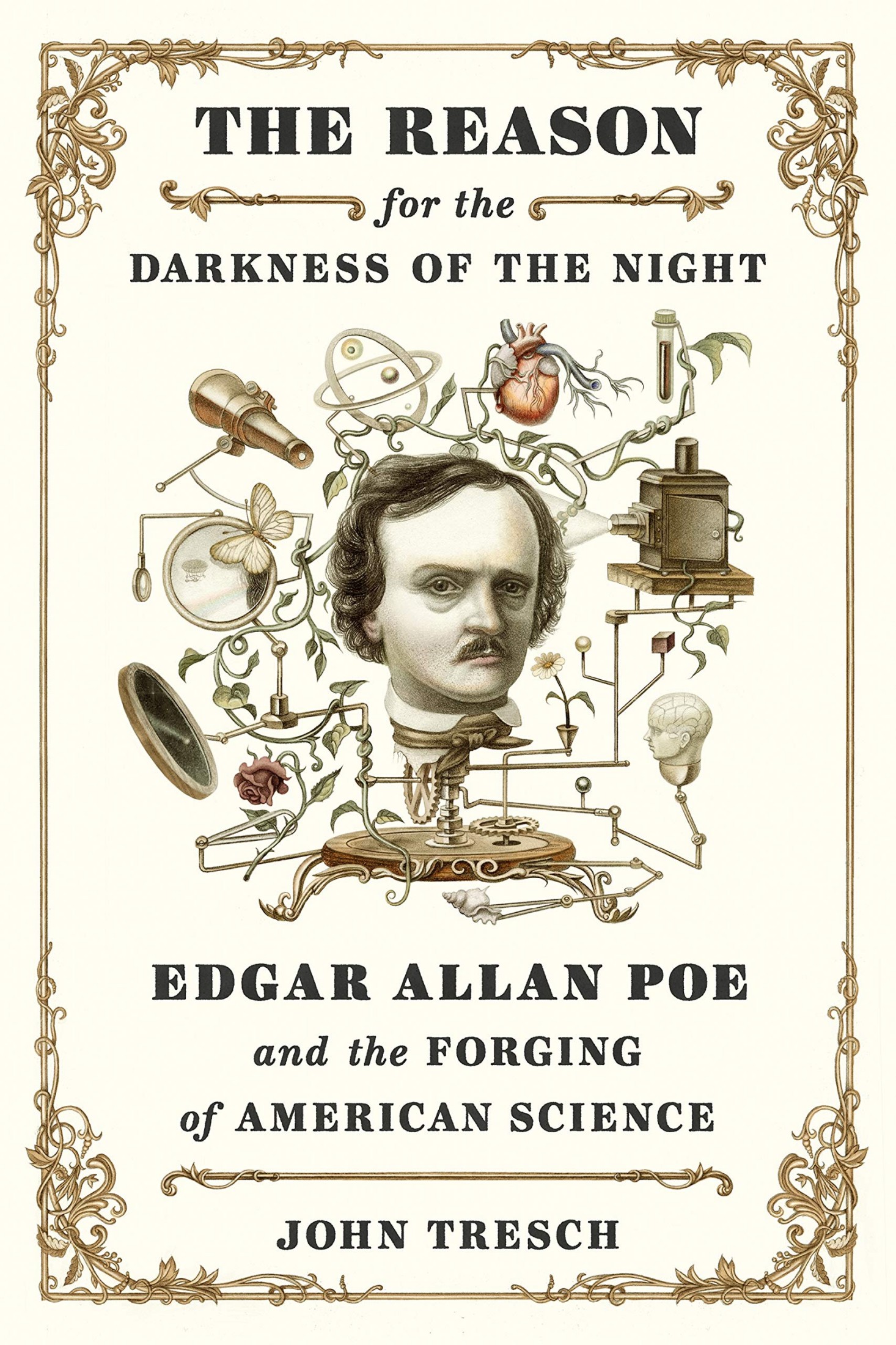


The author and publisher have provided this e-book to you for your personal use only. You may not make this e-book publicly available in any way. Copyright infringement is against the law. If you believe the copy of this e-book you are reading infringes on the authors copyright, please notify the publisher at: us.macmillanusa.com/piracy.
To my mother, who read me scary stories
Art is the perfection of Nature: Were the world now as it was the sixt day, there were yet a Chaos: Nature hath made one world, and Art another. In briefe, all things are artificiall, for Nature is the Art of God.
Thomas Browne, Religio Medici, 1643
At the start of February 1848, New York newspapers announced a mysterious impending event: Edgar A. Poe will lecture at the Society Library on Thursday evening Subject, The Universe. There could be no grander topic. But no one could say just what to expect: a story, a poem, a critical diatribe? It might contain anything and everything.
The Home Journal ventured, There is but one thing certain about it, that it will be compact of thought, most fresh, startling, and suggestive. As a born anatomist of thought Mr. Poe takes genius and its imitations to pieces with a skill wholly unequalled on either side the water. The announcements fueled speculation about the man himself. Despite his renown, he had been out of the public eye for more than a year.
The venue, newly relocated to Leonard and Broadway, offered few clues. The Society Librarys board included social luminaries such as the banker Cornelius Roosevelt. Its fare was more polished than at P. T. Barnums American Museum, ten blocks south; Ralph Waldo Emerson had delivered his Lecture on the Times there, but all manner of entertainments passed through its doors. Recent performances featured Swiss bell ringers, the American Daguerreotype Association, and the stage magician Signor Blitz.
Would Poes lecture be a story, a poem, a scientific treatise, or some unheralded novelty? The Weekly Universe remarked, Mr. Poe is not merely a man of sciencenot merely a poetnot merely a man of letters. He is all combined; and perhaps he is something more.
The speech was Poes return after a fretful absence. He had become famous three years earlier with his poem The Raven. Its odd, enticing melody and haunting refrain, uttered by a cryptic bird to a scholar racked with grief, had engraved itself on the public mind: Quoth the raven: Nevermore. First published under a pseudonym, it was celebrated, reprinted, and parodied. A Gotham paper raved, It is written in a Stanza unknown before to gods, men, and booksellers, but it fills and delights the ear strangely with its wild and clashing music. Everyone reads the Poem and praises it.
They also heard it. Poe became a fixture of New Yorks literary salons, where he magnetized listeners with intense and hushed recitations. The poet Frances Sargent Osgood recalled his proud beautiful head erect, his dark eyes flashing with the electric light of feeling and of thought. Another author reported his reputation as a practitioner of mesmerism, the new science of invisible fluids and the vibrations that unite minds: People seem to think there is something uncanny about him, and the strangest stories are told, and, what is more, believed, about his mesmeric experiences.
The Raven opened other doors. In 1845 he gave a lecture titled The Poets and Poetry of America to a crowd of three hundred, denouncing the feeble state of American writing and criticism, its regional cliques and inflated reputations. By the end of 1846, Poes poems, tales, unflinching opinions, and flair for provocation had brought him near to his dream of running his own magazine. A sketch of him in the first flush of fame suggests a man of poise, wit, and discernment, with good reason to be optimistic (if perhaps a bit anxious).
But his luck changed. For most of 1847 he dropped from salons and lecture halls, to whispers of scandal and tragedy. He moved to Fordham, twelve miles north of the city, with his aunt and his ailing wife, Virginia. He later confessed to a friend, I became insane, with long intervals of horrible sanity. During these fits of absolute unconsciousness I drank, God only knows how often or how much.
Both allies and enemies speculated about his condition. His friend George Eveleth, a medical student, wrote to the editor Evert Duyckinck, Where is Mr. Poewhat is he doingand what is he likely to do? Does he continue to drink hard yet, or has he reformed? His rival Thomas Dunn English, who had written a novel with a vicious caricature of a drunken Poe, ridiculed his lowered state: We understand that Mr. E. A. POE has been employed to furnish the railing for the new railroad over Broadway. He was seen going up the street a few days ago, apparently laying out the road.

Poe around 1846, miniature sketch by John A. McDougall
In fact, withdrawn from the squabbles of the New York papers and salons, safe from public scrutiny and petty attacks, Poe was plotting the next phase of his career. While he was nearly isolated, at one of his lowest moments, his imagination soared. Rambling through Fordhams lush meadows and on the stark, stony cliffs along the Hudson, he undertook daring new works: essays articulating the science of composition; Ulalume, an incantatory ballad lit by the nebulous lustre of a newly born star; a visionary tale, The Domain of Arnheim, scrawled on a single, long scroll, in which an artist of unlimited wealth engineers a vast landscape garden resembling a heaven or a hell; and, most audaciously, the lecture titled The Universe, which the New York papers announced in early 1848.
Poe was pinning his hopes on this work, the first step of his concrete plan to re-establish myself in the literary world. As a magazine writer, he was lucky to receive more than twenty dollars for an article, no matter how widely it was read. A lecture with a decent audience paying fifty cents each could earn him several months rent. He planned to follow the New York event with a national tour, reaping ticket revenues and subscriptions for his reborn literary magazine, The Stylus, starting with his former classmates from the University of Virginia and the U.S. Military Academy: I must get a list of, at least, five hundred subscribers to begin with:nearly two hundred I have already. I propose, however, to go South and West, among my personal and literary friendsold college and West Point acquaintancesand see what I can do.
His lectures published title would be Eureka: An Essay on the Material and Spiritual Universe. Eureka!I found it!was the exclamation of the ancient philosopher Archimedes upon discovering a method for testing the purity of gold. Eureka! was also the joyful shout of prospectors in California. Poe was convinced that the discoveries in his essay would secure his immortal fame, make him rich, and, by plumbing the mysteries of the universe, save his life.
The strategy was less crazy than it might seem. Poe had trained in mathematics and engineering at West Point and spent subsequent decades reviewing fast-breaking developments in electromagnetism, chemistry, natural history, and astronomy; he was positioned as well as nearly any of his contemporaries to speak on cosmology. The origin and makeup of the universe obsessed great minds of the agePierre-Simon Laplace, John Herschel, Alexander von Humboldtand had captivated the American public. The Scottish minister and astronomer Thomas Dick published popular astronomy books that harmonized natural science and Protestant theology, while the eight volumes of the
Font size:
Interval:
Bookmark:
Similar books «The Reason for the Darkness of the Night»
Look at similar books to The Reason for the Darkness of the Night. We have selected literature similar in name and meaning in the hope of providing readers with more options to find new, interesting, not yet read works.
Discussion, reviews of the book The Reason for the Darkness of the Night and just readers' own opinions. Leave your comments, write what you think about the work, its meaning or the main characters. Specify what exactly you liked and what you didn't like, and why you think so.

